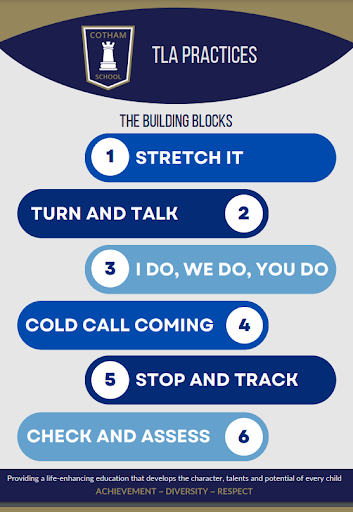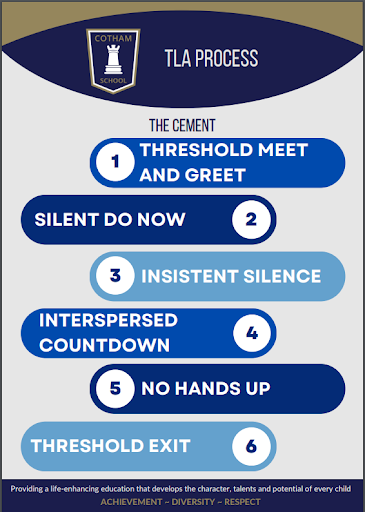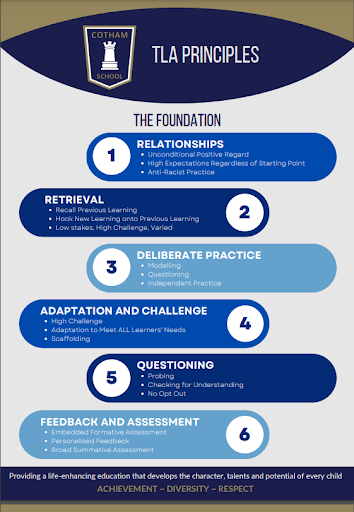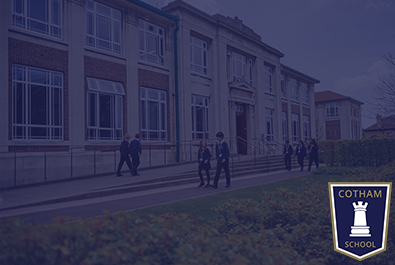Teaching Learning and Assessment
At Cotham School, we believe that all students have the right to receive high-quality teaching that enables them to achieve their full potential. We passionately believe that effective teaching and learning requires a deep understanding of how students learn. Teaching and Learning is grounded in the principles of effective instruction as outlined by Barak Rosenshine and informed by the latest research in cognitive science, which highlights the importance of metacognition, cognitive load theory, and dual coding. Teaching follows the Teaching, Learning and Assessment Principles, Routines and Practices across all lessons as we build effective life-long learning.
THE FOUNDATION: Cotham Principles
THE BUILDING BLOCKS: TLA Practices

THE CEMENT: TLA Process

Formative and Summative Assessment at Cotham School
Both formative and summative assessment play a pivotal role. Formative assessment strategies such as quizzes, discussions, and peer evaluations, offer ongoing feedback to both teachers and students throughout the learning process. This allows teachers to gauge students' understanding, identify areas of struggle, and adjust their teaching strategies accordingly. Formative assessment empowers students to self-assess, set goals, and actively engage with their own learning, fostering a deeper understanding of the subject matter. On the other hand, summative assessments provide a comprehensive measure of a student's overall knowledge and mastery of a subject at a particular point in time. This helps evaluate the effectiveness of the entire teaching and learning process and offers accountability. Balancing these assessment types creates a holistic approach to education, promoting continuous improvement and ensuring that students not only acquire knowledge but also develop critical thinking and problem-solving skills essential for their future success.
|
|
Formative Assessment drives progress |
Summative Assessment measures progress |
Timing |
Embedded into every lesson as a live response to student learning. Informs lesson planning. |
Minimum of twice a year. To inform grades entered at formal data points, which are reported home to parents/carers. |
Tasks Will |
|
|
Feedback Will |
|
|
Strategies |
|
Summative grades will be:
|


